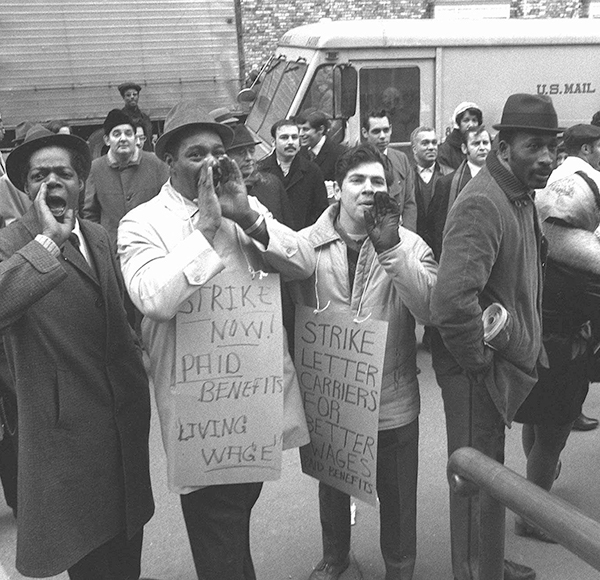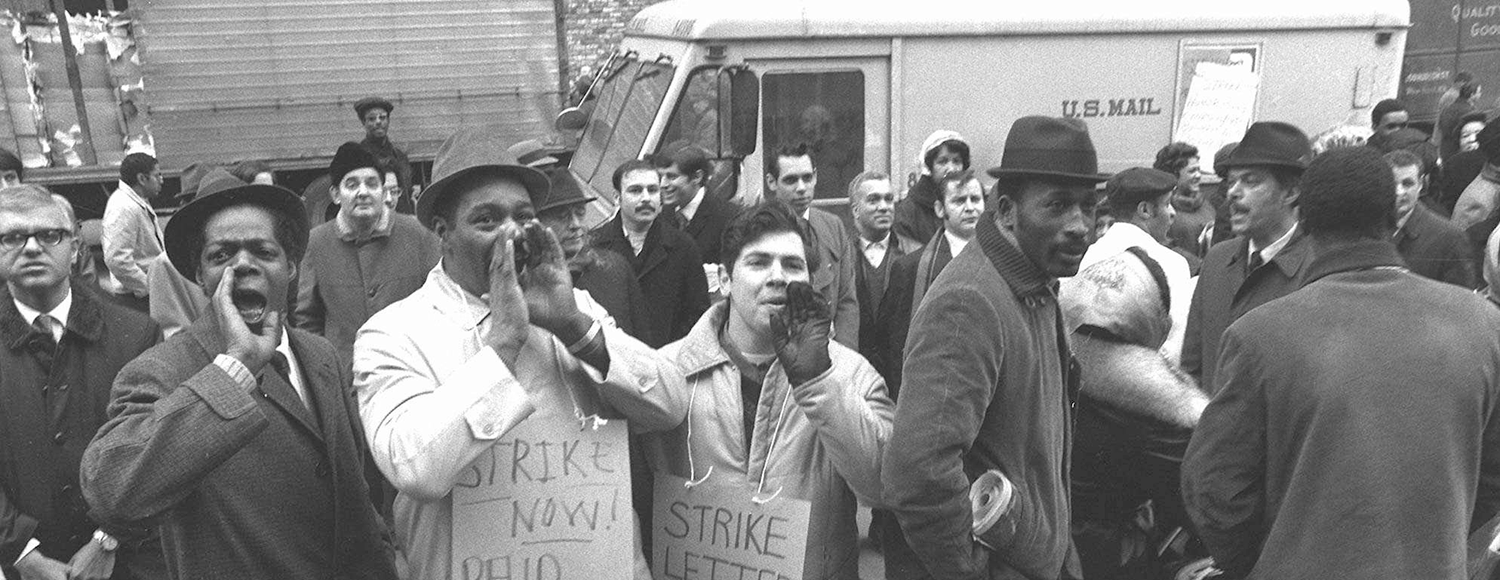APWU History




Postal unions, dating back to the 19th Century, have experienced a number of transitions, paralleling the growth of the former Post Office Department, which became the U.S. Postal Service in 1970. Upon the creation of the USPS, postal unions were allowed to bargain collectively over wages and conditions for the first time.
The early unions had essentially no bargaining rights — they existed largely as lobbying organizations that otherwise would have had no say about their working conditions. Wage increases depended on the whim of Congress.
As a result, postal workers were chronically underpaid. In March 1970, full-time employees earned about $6,200 to start, and workers with 21 years of service averaged only $8,440 — barely enough to make ends meet at that time. In fact, many postal workers qualified for food stamps.
The sporadic raises they did receive never seemed to amount to much, particularly in high-cost urban areas. From 1967 to 1969, postal wages were not increased at all, although Congress did raise its own pay 41 percent during that time. In 1968, the Kappel Commission, a special panel that had been studying postal reform during President Johnson’s administration, concluded that postal workers deserved the same collective bargaining rights afforded to private-sector workers under the National Labor Relations Act. Congress failed to act on the commission’s recommendation.
Workers grew increasingly frustrated with Congress’s inaction, and on March 18, 1970, thousands of New York City postal workers walked off the job in protest. Within days, they were joined by 200,000 others in 30 major cities. Mail service ground to a halt and the plight of postal workers was brought to the public’s attention. [Time Magazine article, March 30, 1970] The strike was soon settled, with Congress approving a 6 percent wage increase, retroactive to the previous December.The strike served as an impetus for the enactment of the Postal Reorganization Act of 1970, which granted unions the right to negotiate with management over their wages, benefits and working conditions. In lieu of the right to strike, a binding arbitration process was established for resolving contract disputes. The law granted postal workers an additional 8 percent raise and enabled them to advance more quickly to higher-paying positions.
In the first contract, a starting postal worker’s salary was raised to $8,488: slightly more than a 21-year veteran of the Post Office Department had been getting just three years earlier.
Since that first contract more than five decades ago, APWU has fought for dignity and respect on the job for the workers we represent, as well as for decent pay and benefits and safe working conditions. And as part of the AFL-CIO, the APWU fights for social and economic justice for all working families.
The APWU was founded on July 1, 1971, the result of a merger of five postal unions. The two largest unions involved in the merger were the United Federation of Postal Clerks, which represented those who ‘worked the windows’ at post offices and those who sorted and processed mail behind the scenes, and the National Postal Union, which claimed members in each craft. Both traced their origins to the National Federation of Postal Clerks, which was created in Chicago in 1906.
Two smaller unions involved in the merger were the National Association of Post Office and General Service Maintenance Employees, which represented those who serviced and repaired machines located in postal facilities, and who cleaned and maintained the facilities; and the National Federation of Motor Vehicle Employees, which represented workers who drove, repaired, and serviced postal vehicles. The smallest union in the merger was the National Association of Special Delivery Messengers.
All these workers are now covered by a single contract negotiated by representatives of all the crafts within the single labor organization, the American Postal Workers Union.
Four months before the Postal Reorganization Act was signed into law, U.S. Post Office Department management and postal unions announced a joint agreement on a reorganization plan. When the PRA became law on Aug. 12, 1970, it created the United States Postal Service, which on Jan. 20, 1971, participated in the first collective bargaining session with seven postal unions, including five that were soon to merge into the APWU.
Exactly six months later, on July 20, 1971, a two-year contract was signed by the new USPS and the APWU unions, along with the National Association of Letter Carriers (NALC), the National Rural Letter Carriers Association (NRLCA), and the National Postal Mail-Handlers Union (NPMHU).
In 1973, 1975, and 1978, the APWU, NALC, NPMHU, and NRLCA bargained jointly as they had in 1971. In 1981, however, the APWU and NALC formed the Joint Bargaining Committee (JBC) and negotiated together. The JBC negotiated three-year contracts with the USPS in 1981, 1984, and 1987, and a four-year agreement in 1990.
Since 1994, the APWU has bargained on its own. Successive agreements ran from 1994-1998, 1998-2000, and 2000-2003. In December 2002, the APWU membership voted to extend the 2000 agreement by two years, until Nov. 20, 2005. In August 2005, APWU members ratified a one-year contract extension. In late 2006, the union reached an agreement with the Postal Service for a four-year contract, which was ratified overwhelmingly APWU members on Jan. 12, 2007. On May 11, 2011, members approved a new Collective Bargaining Agreement, which expired on May 20, 2015. With Arbitrator Stephen Goldberg, successful agreements ran from 2015-2018 and 2018-2021. After months of negotiations, members approved a new three-year Collective Bargaining Agreement, which runs from September 21, 2021 to September 20, 2024.